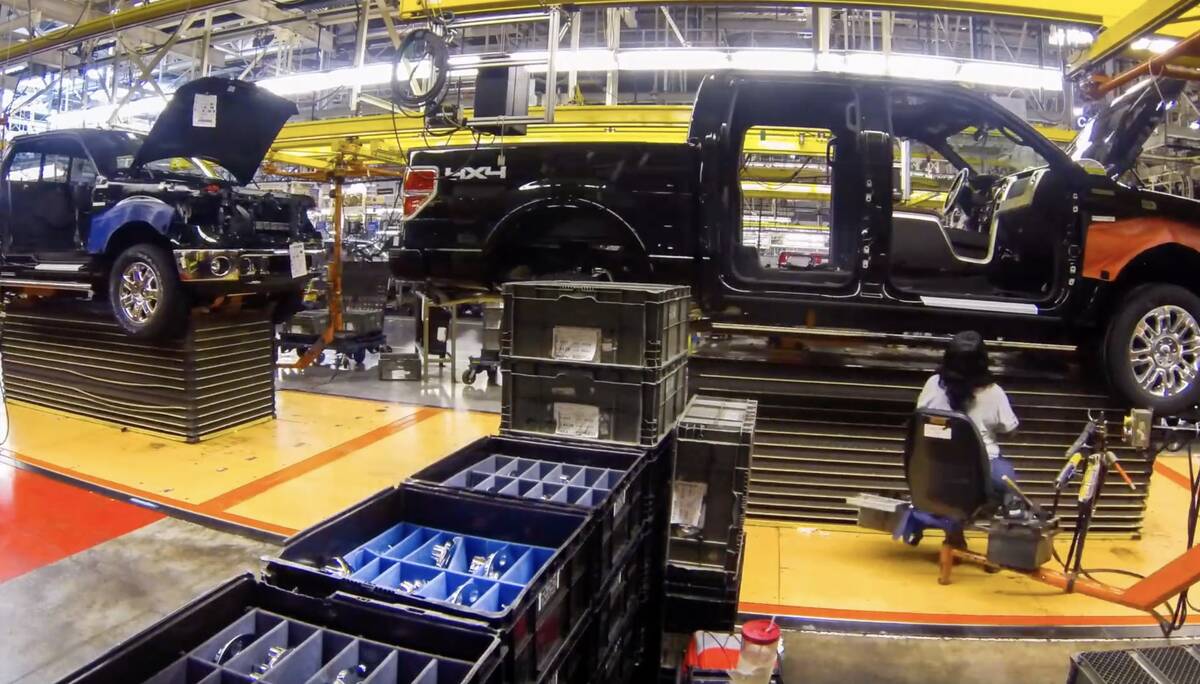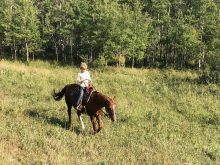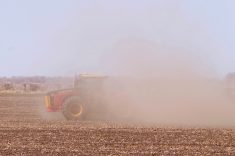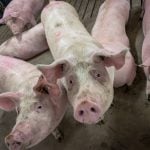If you’re gearing up for spring planting or tending to livestock, you know there are many daily tasks to complete, and your mind may be saying “The work on this farm is never done.” Many young farmers are keen to work hard to prove they are ready to become farm managers — but what tools are helpful for founders and successors to delegate the tasks ahead?
Enter the RACI chart: “Responsible, Accountable, Consulted and Informed.”
Responsible
“Responsible” designates the task as assigned directly to this person (or group of people). The responsible person is the one who does the work to complete the task. Every task should have at least one responsible person and could have several.
Read Also

Is the technology in our vehicles a help or a hindrance?
Not only does new tech allow people to operate vehicles and farm machinery with fewer skills, it also creates more problems for vehicle users when those systems fail, Scott Garvey writes.
Responsible parties on your farm team could be planning the day-to-day work, supervising employees, managing livestock, administrating the farm office — in common language, “the buck stops here.”
The conflict for young farmers is wanting to take on more responsibility but having a manager/founder/parent who refuses to “let go” of being responsible and trusting the next generation to do the job well.
READ MORE: Do the kids really want to take the lead on the farm?
We use a tool, developed by Iowa State University’s Beginning Farmer Center, which we call “the ultimate decision-maker tool.”
Here’s a list of tasks: you rank them with a 1 if the operator (founder) does them alone, or with a 2, 3 or 4 if they are shared with the founder and successor, or a 5 if only done by the successor. If there are lots of 3 rankings, you know decision-making is being shared, and if many are 5s, the successor is taking on more responsibility.
Take these tasks and rank them:
- Plan day-to-day work
- Make annual crop/livestock plans
- Decide the timing of operations
- Decide when to sell crops/livestock
- Decide when to pay bills
- Negotiate purchase of machinery/equipment
- Decide when to hire more help
- Recruit and select employees
- Decide amount and quality of work
- Decide work method/way jobs are done.
- Negotiate loans and financing.
Feel free to ask for the Ultimate Decision Maker tool.
Accountable
The accountable person in the RACI equation delegates and reviews the work involved in a project. Their job is to make sure the responsible person or team knows the expectations of the project and completes work on time. Every task should have only one accountable person and no more.
Accountable parties are typically in a leadership or management role. For farmers, this accountability process may be unclear when there is no formal accountability with performance appraisals. Who on your farms decides the amount and quality of work performed? How clear are your job descriptions?
Consulted
Consulted people provide input and feedback on the work being done in a project. They have a stake in the outcomes of a project because it could affect their current or future work. “Consulted” implies that people appreciate feedback as work is being done, and no one is making assumptions. Poor communication is a common complaint of farm teams. Consulting others for their opinions and input builds trust and creates a culture in your workplace that every voice counts, and not just one person’s way of doing things is the best way. What roles on your farm do you wish to be consulted on?
Informed
Informed folks need to be looped into the progress of a project but not consulted or overwhelmed with the details of every task. They need to know what’s going on because it could affect their work, but they’re not decision-makers in the process.
As a farm spouse, but not an active person working on the farm, I would consider this position as where I need to be. I want to be informed of how activities are going and where I can be a support. I also want to know when we are deciding to make major purchases. On our farm, the founder and successor do lots of collaborative decision-making throughout the day. I need to ask for information to be kept informed, so I might say, “What’s the plan for tomorrow, and where do you need my support?”
Points of clarification
Here’s a list of powerful questions to help you get more clarity about roles and responsibilities on your farm.
- Vision: How do we want family to participate on this farm? Take each person’s name and use the RACI chart beside various tasks to get more clarity.
- Who gets to be an owner? How do they buy in? Do we need marriage contracts or inter-spousal agreements? (Lawyers say yes!)
- What if folks want to exit, or come back to farm later?
- What guidelines do we have for off-farm experience?
- Who gets to work on this farm? (This is a viability question also, how many families can this farm support?)
- How are the main roles or job descriptions determined? (Email me for Dick Wittman’s list of job descriptions to help you get started.)
- What are the farm perks? How is compensation figured out?
- What is the process for hiring family members?
- How do we create a mentoring/learning plan for each generation?
- Who does performance appraisals on family members? When?
- How do we keep family accountable to doing a great job? This is where the RACI chart can help you map out who is accountable for what task.
- What are the guidelines for confidentiality and dealing with suppliers who are family members?
- What is our plan to foster integrity, honesty and transparency?
Asking questions in a formal business meeting is a great way to document and explore the roles and responsibilities that are shifting on your farm. Folks get more energy when they are clear about their roles, skills and passion being in alignment. Founders may have to frame their new role as “being the wise elder” and “stepping back without stepping away.”
Keep talking with curiosity, and volunteer to take on more roles with accountability. You get to build a better culture on your farm as you collaborate.
















